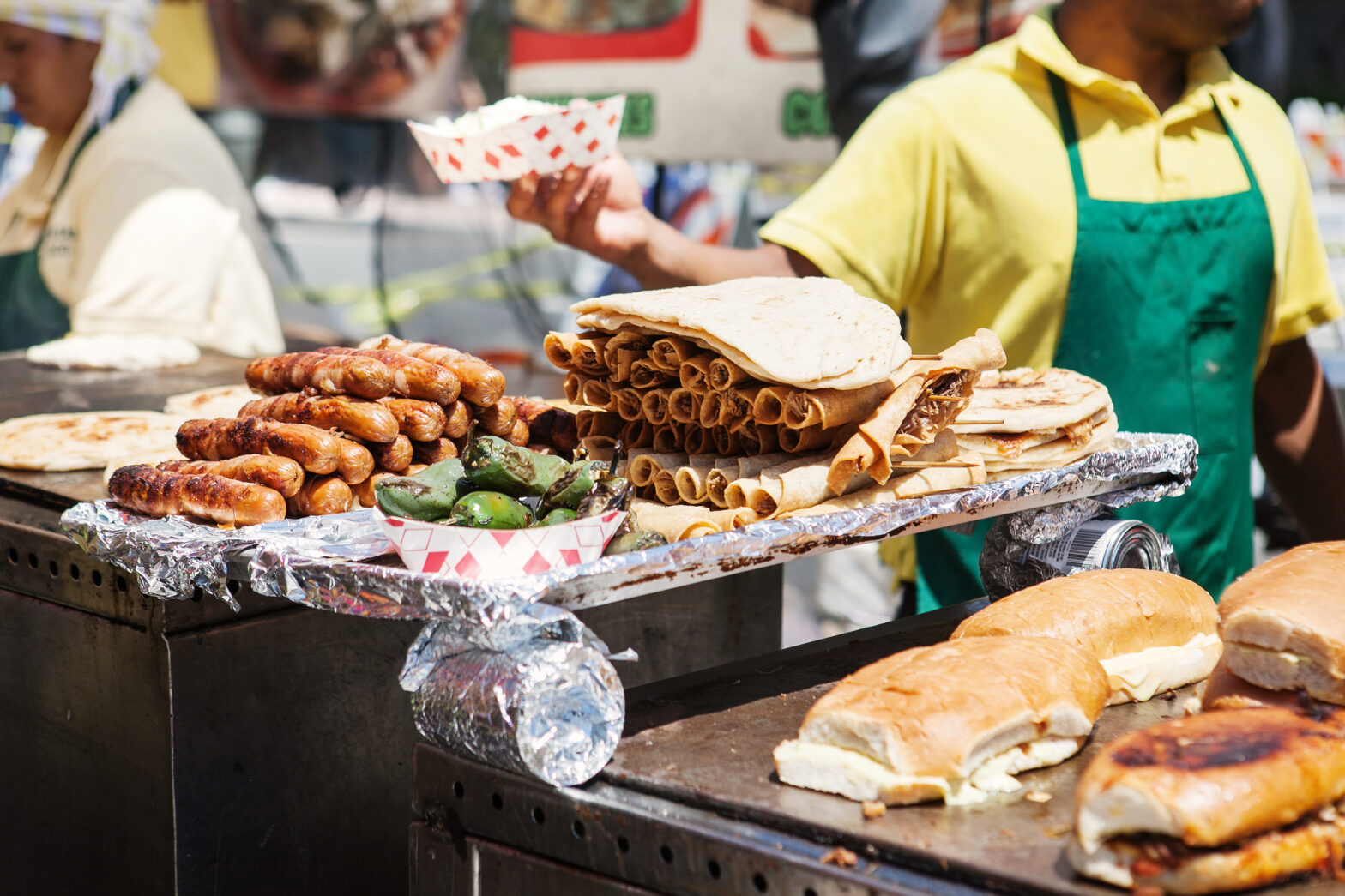In this piece, we speak to four companies that sought to promote their product through trade shows and find out how they approached the process.
The interviewees are Giles Mitchell, co-founder of OfficePantry.co.uk, which delivers food to offices (GM), Kelita Bignall, director of cosmetics brand Yours Truly Organics (KB), Sanjay and Shashi Aggarwal, founders of spice company Spice Kitchen (SA), and Charleh Dickinson, founder and managing director of online food shop Designed2Eat (CD).
When did you consider that a trade show might be useful for you?
GM: Trade shows are an avenue we hadn’t fully tested yet and, as a B2B business, one we felt was worth exploring.
KB: When I first launched my business I decided to do so at a trade show as I wanted to get maximum exposure to industry buyers and, through the press representatives at the show, gain maximum exposure for my brand.
SA: We started the business in 2013 and in early 2014 we realised we had something. As we sell fresh spices and blends, selling face to face is an excellent opportunity to engage with customers, allowing them to smell and taste our products and also provide them with advice.
CD: We wanted to contact more buyers for our product, talk to our customer face to face as well as push with our marketing and contacts who could help us with our marketing.
How did you go about researching the right one?
GM: We researched it by reverse engineering our target decision makers, and then searched the web for relevant trade shows. The best fit for us were Employee Benefits Live and the Office Show; both of which we attended last year.
KB: In the year leading up to launch I visited the large majority of trade shows in the beauty/natural organic industry to see the level of footfall and what types of brand were already exhibiting.
I talked to some of the exhibitors and asked them about their experiences at the shows and whether they considered them worthwhile.
SA: We have spoken to a lot of similar small food brands in our category and they have been invaluable at telling us which are good shows and which not.
Then it was a matter of contacting the organisers to see the prices and the setup. I think by analysing current and previous vendors and event reviews, you can get a pretty good idea of which ones are successful.
CD: I searched on Twitter, looked into what people were saying about the show and then researched its on the website.
How did you prepare for the show?
GM: We prepared by sorting our stand aesthetics, and then thinking about our data capture and follow-up planning for post-show.
KB: I ensured that I was ready by preparing the necessary materials such as brochures and samples to give to visitors.
I had graphic designs prepared for my stand decoration. I employed staff to help work on my stand and wrote to buyers to inform them that I’d be at the show.
I also used social media to promote my stand and to invite people to visit the show and ultimately my stand.
SA: Designing the stand carefully is important as well as deciding which products to take based on that show.
Also packing surplus stock is crucial; the last thing you want to do is fall short. We also made sure we had done smaller farmers’ markets and shows before the big one (BBC Good Food Show) in order to test the market, learn how to lay out our stand and refine how we interact with potential customers.
CD: It was a mad panic! We scheduled all our social media months in advance. We prepared all the marketing, brand and product information and then finally made sure we had enough products.
How did the show go for you? In hindsight, was it a useful marketing tool and was it worth the outlay?
GM: We collected more than 350 contacts of varying degrees of seniority; we therefore found the shows incredibly valuable and, with hindsight, would have gone to one sooner.
We’ll be lining up our shows for this year shortly (just as soon as we have follow up with all of our current leads!)
KB: The show was useful for meeting industry professionals and brand awareness/sales leads but I didn’t find it useful in terms of obtaining orders as many visitors mainly planned to see the more established brands that were exhibiting.
The majority of large retail buyers don’t necessarily visit trade shows.
I didn’t think it was worth the outlay. Although I did meet a lot of people, I’ve since found that a more direct approach with buyers is more successful than doing trade shows.
SA: We have done two shows to date; the Birmingham Independent Food Fair and also Altrincham Market.
Both have been excellent for us and well worth it for getting our name out there as well as sales we have made. As we are a mail order company I have seen online sales after both events and some repeat customers, so the ROI doesn’t end at the shows.
CD: The trade show went very well and we certainly will be doing more. We discovered that doing one a year and really going for it was the best strategy for a small company.
What advice would you give other small companies for finding the right show for them?
GM: Definitely visit at least one trade show, just so if it doesn’t work out you can rule it out as a potential customer acquisition avenue.
I’d also target a show where your target customer would not naturally be. If you’re an event company, perhaps target a food show. If you’re an artisan food firm, why not look at a business travel show?
KB: Consider a show where you can sell your product on the day and recuperate some if not all of your initial outlay.
For your first show it’s best to go for one that is focused on the industry you operate in than a general one.
SA: Speak to other vendors who have done the shows before. Choose carefully, in general markets like ours there are hundreds to go for. Also you will never know until you try them out!
CD: Go to where your target market is first. There you will find the people who will understand your product immediately and there, you will be able to build a brand loyalty.





